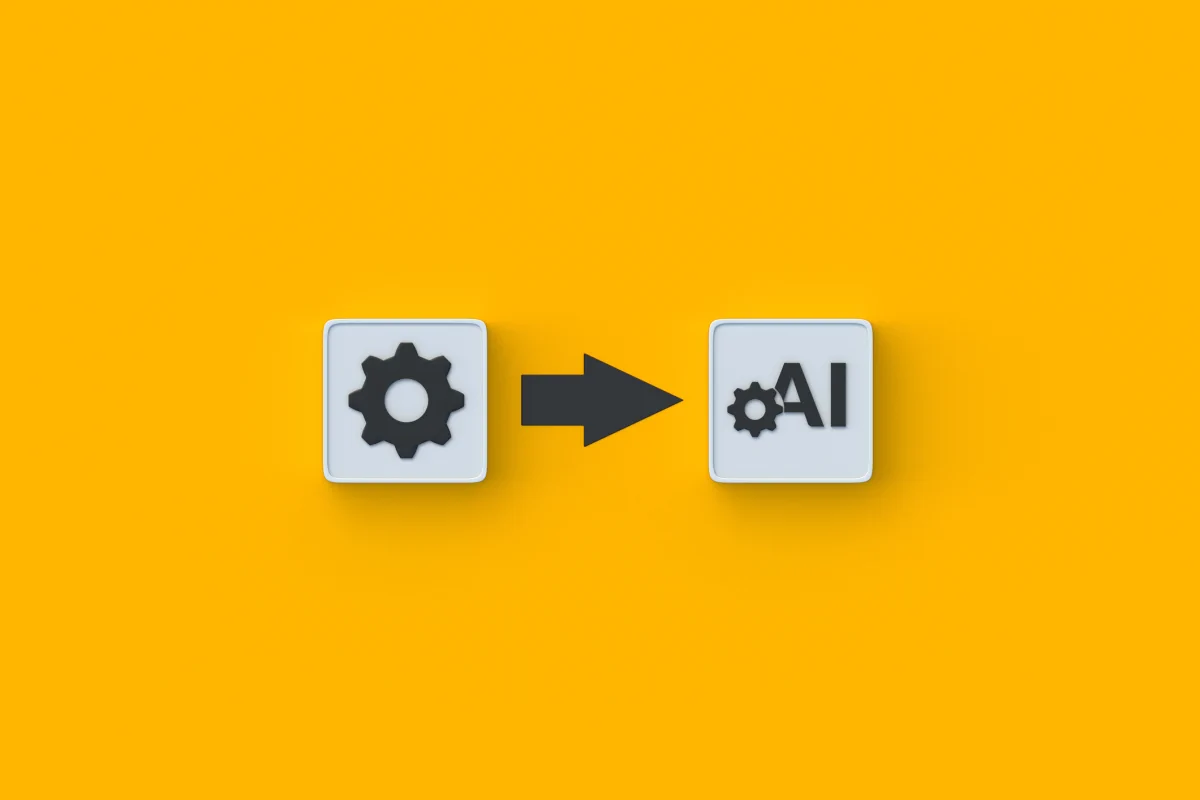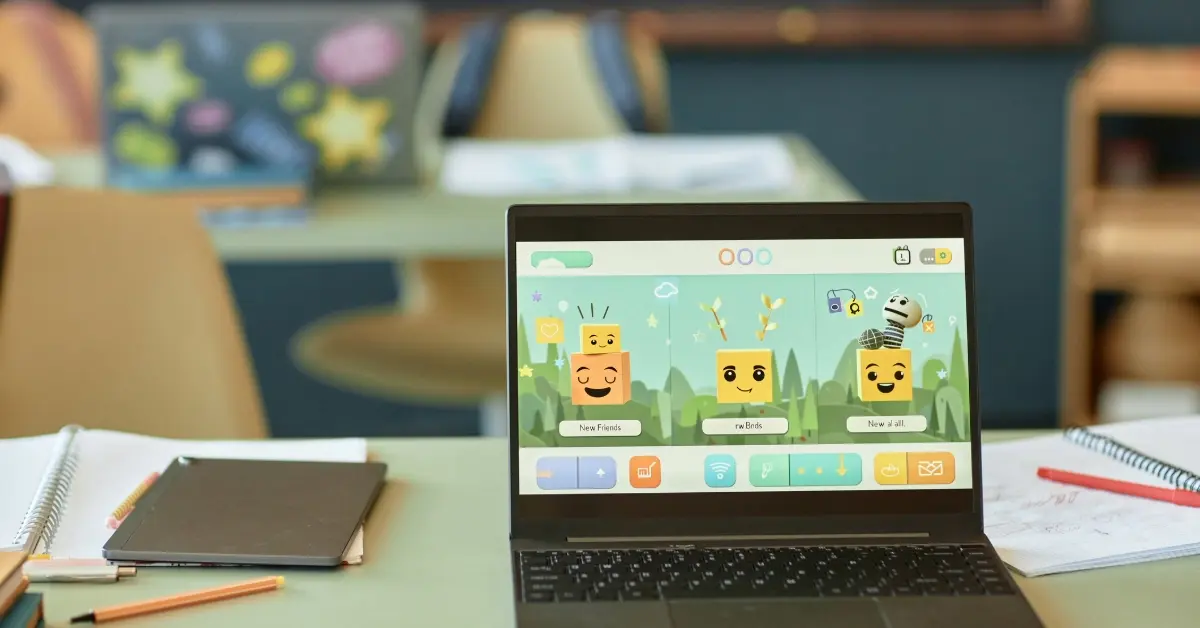Best AI Tools for E-learning
In today's fast-paced digital landscape, the significance of e-learning for CEOs seeking to empower their workforce with advanced skills cannot be overstated. As technology continues to evolve, e-learning has evolved alongside it, becoming increasingly accessible, adaptable, and tailored to individual needs. Yet, amidst this evolution, CEOs encounter formidable challenges in managing e-learning endeavours, grappling with issues ranging from scalability and personalisation to data analysis hurdles.
Enter artificial intelligence (AI) – a beacon of hope amid these challenges. AI tools emerge as potent allies, capable of automating tasks, boosting engagement, optimising outcomes, and reshaping the landscape of virtual interactions. By seamlessly integrating AI into e-learning platforms, businesses can unlock a myriad of benefits: from streamlining content creation to tailoring learning experiences and from gaining actionable insights through analytics to elevating the calibre of online training programs.
This article will explore the best AI tools for CEOs in e-learning. We'll see how these tools help change e-learning and give CEOs what they need to succeed in the digital world.
Table of contents
- What is AI in e-learning?
- Which AI tools are the best for CEOs in e-learning?
- How do you Implement AI tools in your e-learning strategy?
- How can you integrate AI e-learning platforms and tools with Digital Samba?
- What are the future trends of AI and e-learning evolution?
- How can you unlock e-learning's potential with the power of AI?
What is AI in e-learning?
Artificial Intelligence (AI) is like the brainpower behind the scenes of your computer, aiming to make machines as smart as humans. It's all about teaching computers to learn, think, and solve problems, just like we do. Imagine AI as the magic that enables your computer to recognise patterns, understand language, and make smart choices using fancy math. Essentially, it's the technology that automates tough jobs, offers valuable insights from data, and helps make better decisions.
AI is revolutionising e-learning by introducing adaptive learning systems, intelligent tutoring, and personalised content delivery. These advancements enable educational platforms to offer more engaging, efficient, and tailored learning experiences. Integrating AI within e-learning not only automates administrative tasks but also significantly improves the quality of education provided.
What are the benefits of AI in e-learning?
The incorporation of AI into e-learning platforms brings forth numerous benefits that address traditional educational challenges:
Personalised learning experiences
Automated content creation and curation
Data-driven insights and performance analysis
Improved learner engagement and motivation
What are the challenges of implementing AI in e-learning
Alongside its benefits, the integration of AI in e-learning has its own set of challenges:
Cost and technical expertise required
Data privacy and security concerns
Recognising the significance of AI in e-learning is paramount for CEOs and educational leaders aiming to leverage technology for improved learning outcomes. While AI promises avenues for personalised, efficient, and engaging education, it also demands careful consideration of associated challenges. Effectively navigating these complexities is vital for the successful integration of AI into e-learning strategies.
Which AI tools are the best for CEOs in e-learning?
Below, we explore the best AI tools across various categories that are must-haves for CEOs in the e-learning sector who aim to enhance their offerings.
AI-powered Learning Management Systems (LMS)
Learning Management Systems (LMS) are like the engine of online learning. They help deliver lessons, track progress, and organise courses. With AI, these systems get even better. They suggest courses automatically, create personalised learning paths based on how well you're doing and what you like and give detailed reports on how you're doing.
For example, 360Learning uses smart technology to suggest what you might like to learn, making your experience unique. Another tool called Moodle helps teachers and students by giving smart tips and reports. These show how AI can make online learning faster and better for everyone.
AI chatbots and virtual assistants for e-learning
AI chatbots and virtual assistants are changing how we learn online by giving instant help, anytime, day or night. They can answer questions, guide you through courses, and even give feedback that's just for you. They also help with things like signing up for classes and making schedules. This quick help makes learning more fun and easier.
One example is Georgia Tech’s Jill Watson. She helps students in online classes by answering questions fast and right. This AI helper makes learning smoother for students and gives teachers more time. Another one is EdTech Foundry’s Differ. It helps students stay interested and work together by sending reminders, messages, and helping them connect with each other. These AI helpers make online learning more exciting and connected.
AI-powered content creation and curation tools
Content is super important in online learning, and AI tools are making it easier to create and pick out the best stuff. They can write text, translate it, and suggest things you might like based on what you've done before. This saves teachers lots of time and makes sure you're learning about things that really interest you.
For example, Articulate 360 helps make fun learning stuff with AI. Others like Curata and Feedly find and suggest new things to learn, so teachers can keep their lessons fresh and exciting. These tools show how AI can make learning online more interesting and up-to-date.
AI-powered data analytics and reporting tools
Fancy AI tools help teachers and administrators understand how e-learning is going. They look at data to see what's working, predict how well students will do, and find out where they might need more help. Plus, they show if e-learning is worth the money it costs, which is important for the people who make decisions.
LearnerScript is one of these handy tools. It analyses a large amount of data to see how students are doing, predicts their future performance, and tells us how engaged they are. These AI tools help businesses improve their e-learning and plan for the future.
How do you implement AI tools in your e-learning strategy?
Integrating AI into your e-learning strategy requires careful planning and execution. Here's a step-by-step guide to help you navigate the process:
- Identify your e-learning goals and challenges:
- Start by clearly defining the objectives you aim to achieve with your e-learning initiatives. Is your goal to improve skill development, increase learner engagement, or reduce training costs?
- Also, identify the specific challenges hindering your current e-learning programs. These could include inefficient content delivery, a lack of personalisation, or difficulty measuring program effectiveness.
- Research and select the best AI tools for business:
- Conduct thorough research to explore the wide range of AI productivity tools available. Consider your budget, specific needs, and compatibility with your existing e-learning ecosystem.
- Also, consult with industry experts and leverage resources from reputable organisations like the eLearning Industry Association to gain valuable insights and recommendations.
- Develop an implementation plan and timeline:
- Create a clear plan outlining the steps to implement the chosen AI tools. This should include timelines, resource allocation, and responsibilities for each team member. You can easily accomplish this by using a free timeline maker like the one provided by Venngage and other design tools.
- Integrate AI tools with your existing e-learning ecosystem:
- Ensure successful integration of AI tools with your existing LMS and other learning management technologies like video conferencing capabilities. This might involve technical expertise and collaboration with IT teams.
- Monitor and evaluate the impact of AI tools:
- Continuously monitor the performance of your e-learning programs after integrating AI tools. Regularly assess key metrics like learner engagement, knowledge retention, and overall program effectiveness.
Potential risks and considerations
While AI offers tremendous potential, implementing these tools requires careful consideration. Here are some risks that might occur:
Ethical considerations around data privacy and security
The initial cost of acquiring and integrating AI tools
By following these steps and carefully managing potential risks, you can leverage AI tools to create effective and transformative e-learning experiences for your organisations.
How can you integrate AI e-learning platforms and tools with Digital Samba?
Digital Samba presents exciting possibilities for complementing and enhancing AI-powered e-learning tools. Here's how:
Streamlined communication and collaboration
You can directly integrate Digital Samba's video conferencing functionalities into AI-powered learning platforms. This allows learners to easily connect with instructors, peers, or experts for real-time discussions, Q&A sessions, or collaborative project work, enriching the learning experience.

How to Integrate Video Conferencing into Your Website
Read the blog
Personalised learning journeys
Leverage AI-powered platforms to personalise learning paths and seamlessly schedule video conferencing sessions within Digital Samba. This could involve one-on-one coaching sessions, group discussions tailored to specific learning needs, or personalised feedback sessions facilitated through video calls.
Enhanced learner engagement
Utilise AI-powered learning platforms to identify areas where learners might benefit from additional support or interaction. Integrate features like automated prompts to schedule video consultations with instructors or personalised reminders to join group video discussions hosted on Digital Samba, fostering active participation and engagement.
Scalable knowledge-sharing and training
Combine AI-powered content creation and delivery with our multi-participant video conferencing capabilities. This allows experts to deliver live or pre-recorded lectures to large audiences using Digital Samba, reaching a broader learner base while providing real-time interaction and knowledge-sharing opportunities.
Continuous improvement and data analysis
Integrate tools that analyse learner engagement and sentiment during video conferences hosted on Digital Samba. This data, combined with insights from the AI-powered learning platform, can provide valuable feedback for instructors and e-learning program designers, enabling continuous improvement and optimisation of learning experiences.
Robust data security measures
Digital Samba utilises industry-standard encryption protocols to safeguard data, ensuring the confidentiality and integrity of all communication and learner information. Our platform is also GDPR compliant, protecting user data and complying with international data protection standards.
By strategically combining AI-powered e-learning tools with Digital Samba's video conferencing functionalities, organisations can create a dynamic and interactive learning environment that fosters deeper engagement, personalised learning experiences, and, ultimately, improved learning outcomes.
What are the future trends of AI and e-learning evolution?
As AI continues to advance, CEOs in the e-learning sector should keep an eye on the following emerging trends that will shape the future of online education:
- Immersive learning experiences: AI could power the development of more immersive learning environments, such as virtual reality (VR) and augmented reality (AR). These environments could be integrated with video conferencing platforms like Digital Samba, allowing learners to interact with virtual scenarios and collaborate with peers in real time.
- AI-powered coaching and mentorship: AI-powered virtual assistants and chatbots could evolve to provide personalised coaching and mentorship to learners, offering targeted feedback and guidance within video conferencing sessions on platforms like Digital Samba.
By staying informed about these trends and exploring strategic collaborations, CEOs can leverage AI's evolving power to shape the future of e-learning and equip their organisations for success.
How can you unlock e-learning's potential with the power of AI?
AI is changing how we learn online, giving CEOs tools to make learning more personal, based on data, and fun. These smart platforms can help each person learn in their own way, make lessons automatically, and show what's working and what's not. By picking the best AI tools for business, CEOs can make online learning even better for their teams and their company.
Digital Samba offers a powerful and versatile solution for e-learning platforms looking to enhance learner engagement and collaboration through video conferencing. Book a call with us today and find out how Digital Samba can seamlessly integrate with your AI-powered e-learning ecosystem to create truly impactful learning experiences.
FAQs
AI tools for e-learning can significantly enhance the effectiveness of video conferencing apps by providing features like automated transcription, real-time translation, and personalised learning recommendations. Integrating AI-based e-learning solutions helps educators deliver more engaging and interactive sessions, catering to individual learning needs.
The best AI tools for CEOs and executives include platforms that offer predictive analytics, automated scheduling, and enhanced security features. These tools help streamline communication, improve decision-making, and ensure seamless video conferencing integration into business operations, especially for remote teams.
The challenges include ensuring data privacy, managing integration with existing systems, and addressing compatibility issues with different platforms. However, the use of AI tools in e-learning can transform online education apps by offering adaptive learning paths, student engagement tracking, and real-time assessments.
AI tools for e-learning are crucial for scalability, as they enable personalised content delivery, automated grading, and intelligent feedback mechanisms. This makes video conferencing platforms more adaptive and capable of handling a large number of users while maintaining a high-quality learning experience.
Share this
You May Also Like
These Related Stories

Best AI-Powered Tools for LMS

AI-Powered Video Conferencing Tools & Integrations



